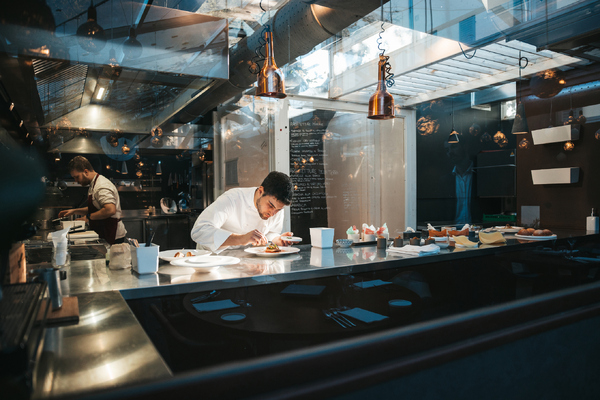Why better procurement could breathe new life into the struggling UK hospitality sector
Sponsored by Amazon BusinessThe UK hospitality sector faces rising costs, dwindling consumer confidence and reduced government support – but more efficient procurement could help it better control costs

The pressure the UK hospitality sector faces shows little sign of easing. The industry is one of the larger users of energy, so any increase in costs will have an impact on profitability. With prices still 75 per cent higher than they were pre-pandemic, this represents a significant increase in outgoings that can only partly be covered by increasing prices for guests or diners.
Other factors have also added to the pressure. The government’s increase in employer National Insurance contributions from 13.8 to 15 per cent – and the move to reduce the level at which this is paid from £9,100 to £5,000 – has added another unwelcome hurdle to a challenging picture.
The reduction in business rates relief from 75 to 40 per cent in the October 2024 Budget has also partially removed one of the elements that was designed to ease the pressure on hotels and restaurants. All the while, consumers and businesses are cutting back on spending, as they also get to grips with rising costs and less disposable income.
The sector has proved remarkably resilient, despite a number of failures, but there is a clear need for strategic adaptation and innovation in an increasingly competitive and demanding environment.
Against this backdrop, hotels, restaurants and resorts are all under pressure to cut costs and eliminate unnecessary expenses. All items are up for review, from food and drink to cleaning supplies, building maintenance and office operations. Finding the right balance between reducing costs while maintaining quality and service levels is one of the biggest challenges operators face today.
One area where hospitality business can identify significant opportunities is in indirect spending. This relates to items that are not the organisation’s core focus but still essential to the successful operation of any establishment, such as office supplies, IT equipment, safety materials or janitorial items.
Traditionally, such products are bought in an unstructured way – even using cash from the till on occasion – from multiple suppliers as and when needed, meaning organisations often fail to get the best price and may end up duplicating orders.
Modern digital procurement systems can help transform this. By centralising such purchases through platforms such as Amazon Business, hospitality firms can benefit from cost savings while also putting in place measures to ensure people are buying from approved suppliers and comply with agreed spending limits. They can also benefit from more efficient delivery, which can be essential in a fast-moving environment such as hospitality.
Such systems also allow for greater control over the selection of suppliers, including making use of local or national businesses to help balance the need for cost control with operational efficiency. Many hospitality firms are also keen to improve their reputation as responsible businesses, and are looking to purchase items from suppliers that share their values.
Gaining control over indirect spend also means organisations have access to better management information, which can then be used to analyse what they are buying, from which suppliers, and whether there are additional strategies that can reduce costs further. This could identify, for instance, that one restaurant or hotel in a chain is spending significantly more than others for similar items, or identify cases where items have been ordered but not used.
Italian hotel chain Russotti Gestioni Hotels – a franchise of Marriott – has around 1,500 rooms spread over five hotels in Milan, Rome, Venice and two in Sicily. Like many hospitality firms, its approach to procurement had been haphazard, meaning it would end up paying more than it should and had little information around what it was spending and with which supplier.
The group was keen to implement a more efficient procurement system to cover items such as stationery, room beautification products, small maintenance tools and decorative objects, as well as to manage specific requests for products needed for business meetings or weddings.
The chain partnered with Amazon Business to help gain greater control over spend and digitise its procurement processes, while also improving the range of products available to those tasked with buying them for the individual hotels. “Thanks to these advantages, we are able to best respond to the needs of our customers, guaranteeing them the products they need, at the right price,” says Christian Perri, purchasing director at Russotti Gestioni Hotels.
To find out more about how Amazon Business could help your hospitality business, visit business.amazon.co.uk/

Business Reporter Team
You may also like
Most Viewed
Winston House, 3rd Floor, Units 306-309, 2-4 Dollis Park, London, N3 1HF
23-29 Hendon Lane, London, N3 1RT
020 8349 4363
© 2025, Lyonsdown Limited. Business Reporter® is a registered trademark of Lyonsdown Ltd. VAT registration number: 830519543



